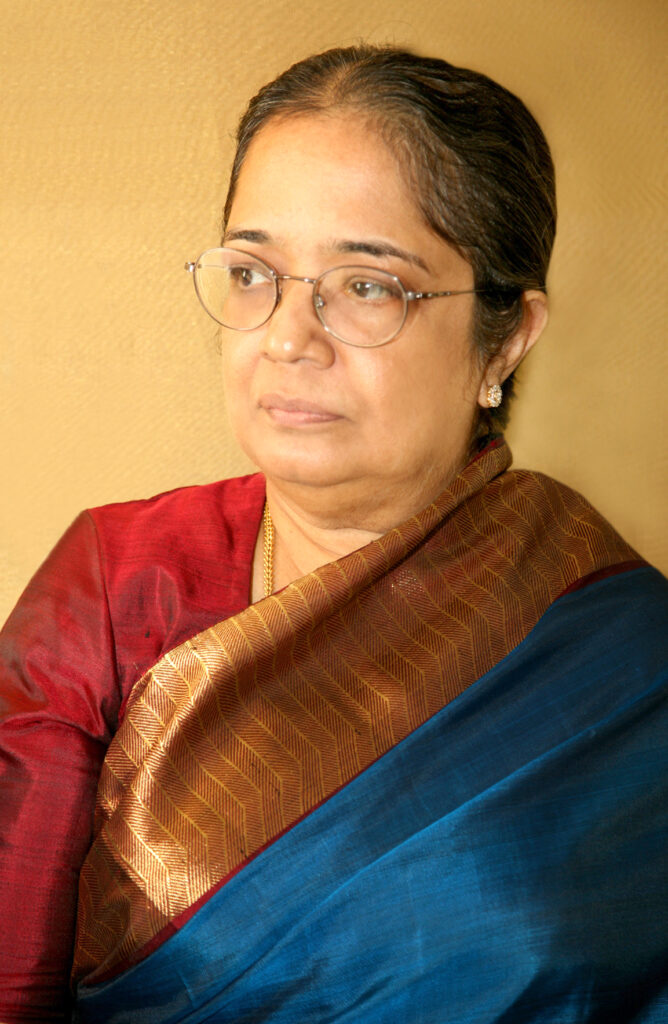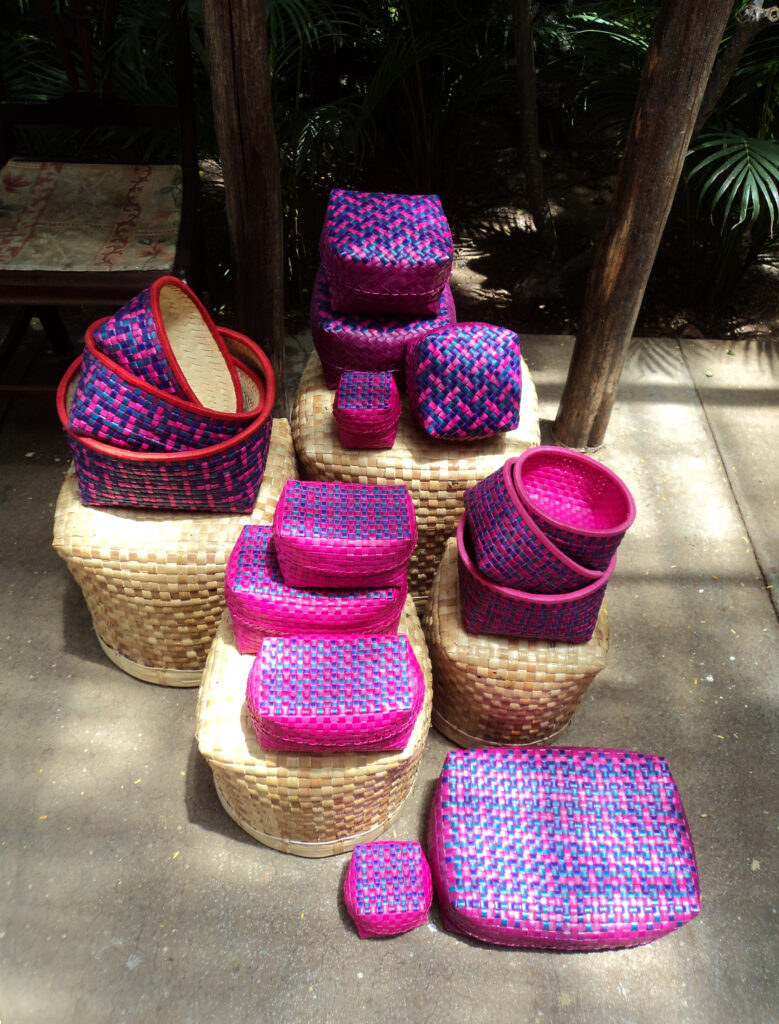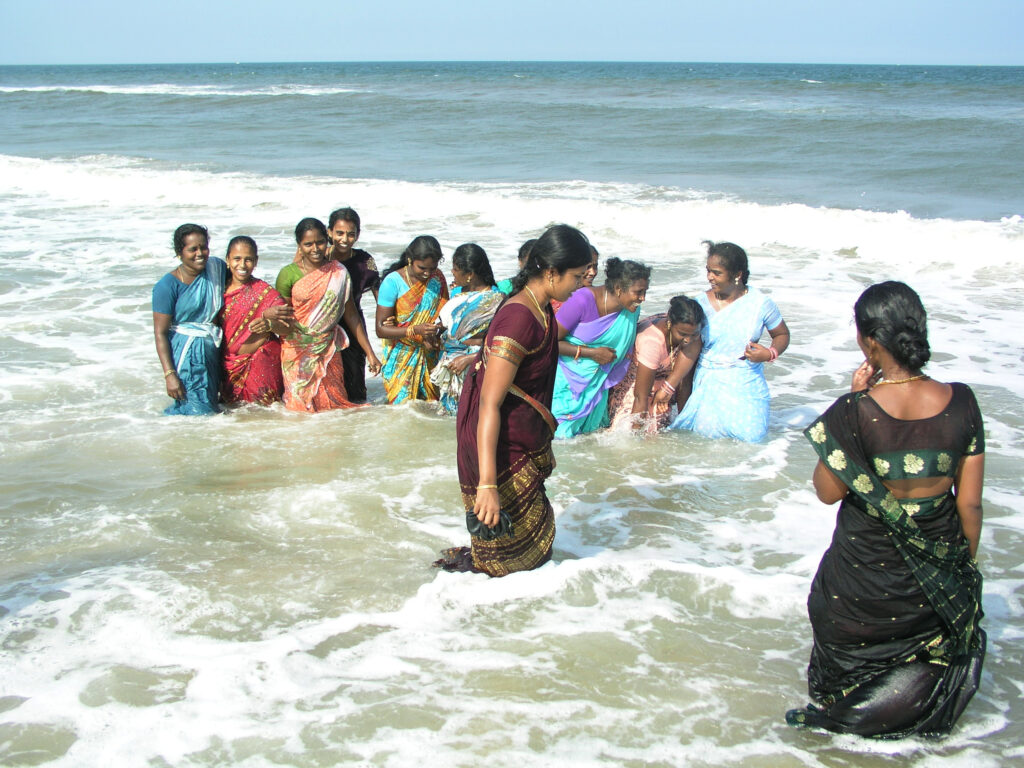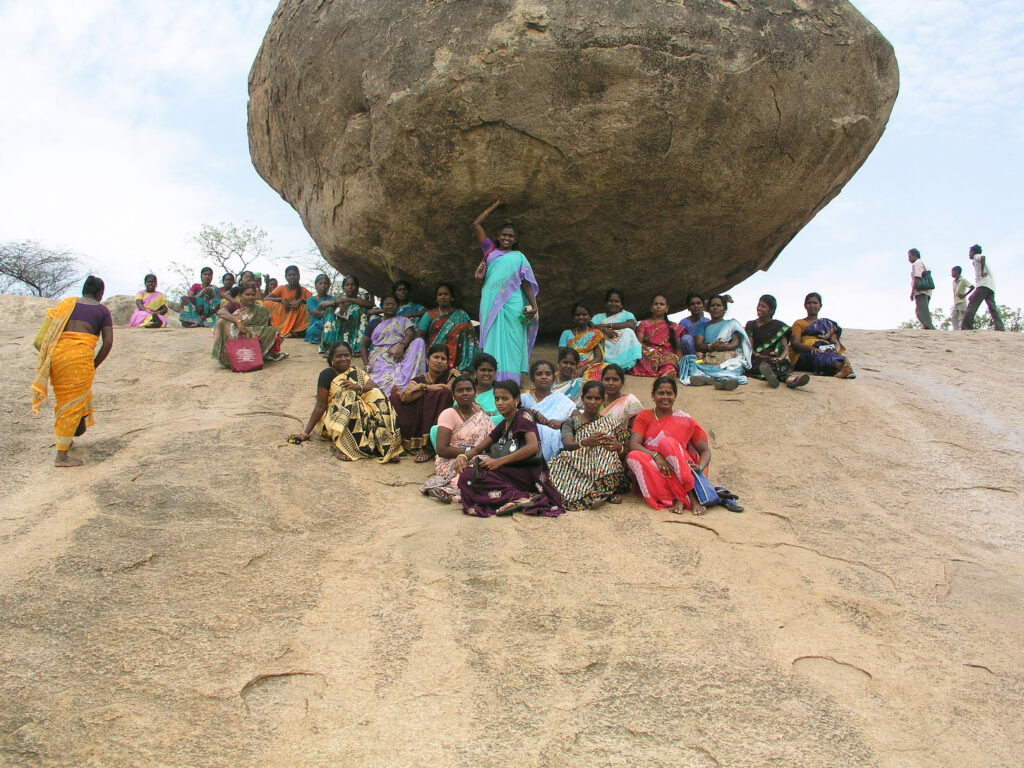Many NGOs are often formed with social development as their mission and still struggle to deliver. The M.Rm.Rm. Cultural Foundation and its Kottan Project, however, stand out in that they were formed with the goal of reviving rural craft, but in that process, have brought about large-scale social impact. We recently had the opportunity to interact with the NGO’s founder, Ms. Visalakshi Ramaswamy, thus bringing to you today the journey of the Kottan project and its social impact, focusing on the ’empowerment’ of women belonging to a rural portion of the state of Tamil Nadu.


Image source: M.Rm.Rm. Cultural Foundation
Kottan Project:
The M.Rm.Rm. Cultural Foundation was founded 23 years ago by Ms. Visalakshi, who was then in her mid-50s. An executive committee member of the Crafts Council of India, her love for craft is also highlighted through her past associations with the All India Handicrafts Board and DakshinaChitra. Of her passion for various crafts, she was particularly keen on reviving the dying crafts of her ancestral hometown, Chettinad. This led to the inception of the NGO. Hiring one social worker at the start, she decided to approach women of the Keelayapatti village to involve them in the revival of the art of making kottans (palm leaf baskets), a disappearing but integral part of Chettinad’s heritage. The women, however, were reluctant to join, communicating to her that many government schemes were often undertaken involving them, only to end up leaving them in the lurch. Hearing this, she promised them that she would continue to stay with them come what may, a promise that holds good even after 23 years.
On convincing them with her promise, she hired a group of 10 women who were to be trained in the making of the kottans. Provided with training space by the local panchayat, they were then trained for one year, along with being monetarily compensated. There’s been no looking back from thereon, with the initiative and foundation continuing to grow, both in terms of the number of women joining by word of mouth as well as the rise in demand for their products, even opening an outlet in Chennai. What started as 10 women in one village is now more than 100 women across centres in five villages, spanning various crafts and projects. The journey, however, has had its share of challenges, such as the recent pandemic. The source of the bulk of their orders is festivities like weddings and Diwali, and COVID meant a complete halt to gatherings, thereby leading to a fall in demand for these kottans, which in turn directly impacted the lives of these women. Today, however, roughly 3-4 years after the start of the pandemic, the story is very different, with demand this Diwali season being at an all-time high, so much so that for the first time, the foundation has had to turn down some orders. This Kottan initiative, its beneficiaries, and the craft thus continue on their journey of growth!
Social Impact:
With many of the husbands employed as labourers abroad, the Kottan project is a continual source of livelihood for these economically backward women, who are otherwise left to tend to their husband’s livestock. This initiative has facilitated a way for them to stand on their own two feet, sometimes even earning more than their husbands. While income generation is one important aspect, the highlight has been the confidence, exposure, and respect gained. Many of these women, who were otherwise not permitted to leave their villages, have now travelled to countries such as Japan, Cuba, Switzerland, and Scotland for various exhibitions, thereby gaining new life experiences. Provided a bonus twice a year, the women requested that they only be provided one, and the money from the second be used to take them on a holiday someplace within India. Having been on tours of Ooty, Kodaikanal, Karnataka, and so on, it is clear that these women wish to explore the world around them. The positive impact has also not stopped at the level of the women, as by being provided a platform to earn regularly, it has allowed them to better invest in the education of their children.


Image source: M.Rm.Rm. Cultural Foundation
Furthermore, inputs on health and sanitation, the construction of toilets, yoga training, and guiding these women’s kids in their education are some of the supporting activities that have been undertaken by the foundation, thus building on the impact that is being created. It is also noteworthy that for this project to be able to create this level of social impact, none of these women have been displaced from their villages or have needed to drastically alter their lives. This is because palm leaf, which is the base for this craft, is available in this region of Tamil Nadu, and the steps involved in the making of these baskets, barring the dyeing process, are steps that can be undertaken at one’s own home. This has thereby facilitated these women to continue living in their own villages and homes and tend to daily personal commitments while working on the baskets at the same time. Such aspects of this initiative have contributed to its success. In conclusion, the journey of this Kottan project and its social impact, which can be traced back to one person’s passion for rural craft, is a testament to how passion can be channelled in a manner that helps in the empowerment of the lives of many others!